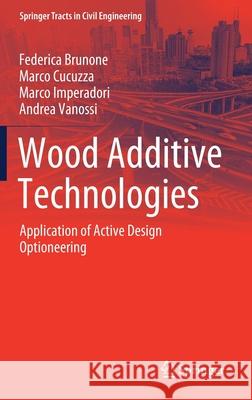Wood Additive Technologies: Application of Active Design Optioneering » książka
topmenu
Wood Additive Technologies: Application of Active Design Optioneering
ISBN-13: 9783030781354 / Angielski / Twarda / 2021 / 182 str.
Kategorie:
Kategorie BISAC:
Wydawca:
Springer
Język:
Angielski
ISBN-13:
9783030781354
Rok wydania:
2021
Wydanie:
2021
Ilość stron:
182
Waga:
0.45 kg
Wymiary:
23.39 x 15.6 x 1.27
Oprawa:
Twarda
Wolumenów:
01
Dodatkowe informacje:
Wydanie ilustrowane











